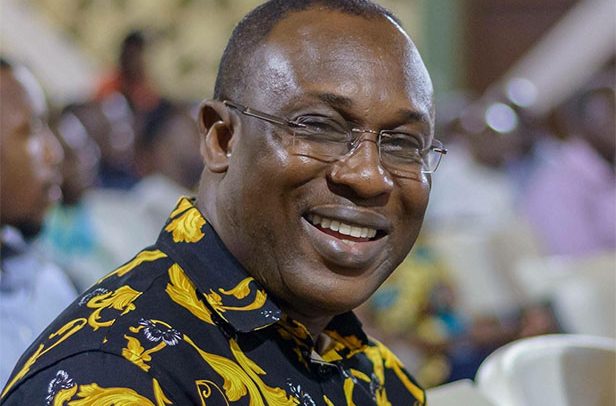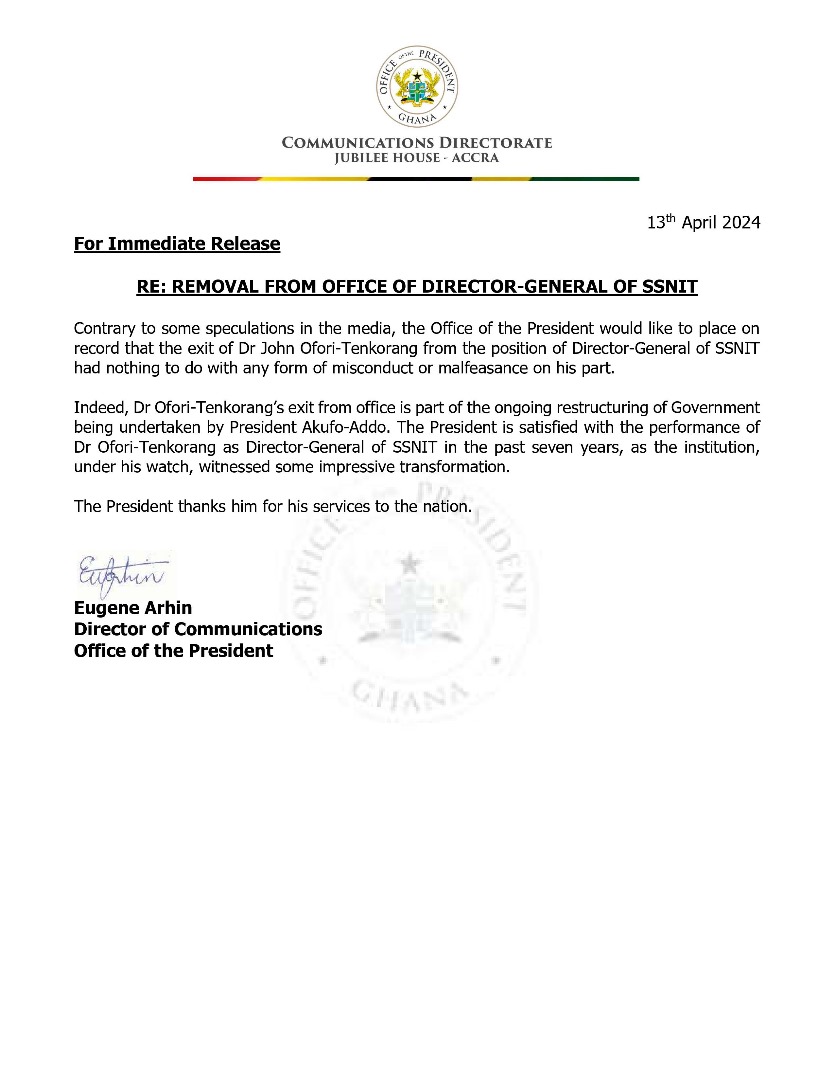
Executive Director of the Media Foundation for West Africa (MFWA), Sulemana Braimah, is questioning why Bolgatanga Central lawmaker Isaac Adongo has not been arrested and prosecuted for publication of false news.
This comes on the heels of the denial by the Bank of Ghana of a claim by Adongo, also a member of the governing board of the BoG, that the central bank had banned over-the-counter cash withdrawals in foreign currencies.
Adongo had claimed that the BoG had prohibited over-the-counter cash withdrawals in foreign currencies except for transactions in foreign denominations outside Ghana.
“Over-the-counter (OTC) cash withdrawals in foreign currency from Foreign Exchange Accounts (FEA) and Foreign Currency Accounts (FCA) are still allowed.”
It added, “for non-FEA and non-FCA account holders, forex purchases for travel outside Ghana are allowed but capped at $10,000 or its equivalent per person per trip”.
“Cheques and cheque books may continue to be issued on FEA and FCA accounts.”
Reacting to this development in a statement, Sulemnaa Braimah said that “When Jeffery Nyame speculated that dollar account holders won’t be able to access dollars from their banks, he was jailed for 30 days for publication of false news. Why has Hon. Isaac Adongo not been arrested and prosecuted for publication of false news?”
He added “If Adongo’s statement had been made by a journalist or a known NPP activist, would the person have gone free? Maybe not. Police and national security may have stormed the person’s residence to arrest him or her in a Rambo style, like they did last week in the case of NPP’s Alfred Ababio.
“I am raising this, not because I want Hon. Adongo arrested, prosecuted and jailed. I just want to flag the obnoxiousness of Section 208 of Ghana’s Criminal Offences Act of 1960 (Act 29). This law has, perhaps since its enactment, remained a potent tool for going after opposition elements and those who say things that governments are not happy about.”

Below is his full statement…
In August 2024, a blogger called Jeffrey Nyame was put before an Accra circuit court to face a charge of publication of false news under Section 208 of Ghana’s Criminal Offences Act of 1960 (Act 29).
Police prosecutor, ASP Seth Frimpong, told the court that the Police had gathered intelligence on social media, indicating that on October 27, 2022, Jeffrey had published false information through his blog called reportghana.net.
The police prosecutor informed the court that the said false publication was captioned: “Dollar account holders to get cedi at BOG rate for bank withdrawal effective 31st Oct?” It is important to note that the said caption ended with a question mark, suggesting that the publication had been made speculatively.
The police prosecutor went on to tell the court that the said publication by Jeffery on his barely known blog, triggered panic withdrawal by dollar account holders.
The court eventually found the blogger guilty of publication of false news. But before sentencing, a lawyer who acted as a friend of the court pleaded with the judge not to hand down a custodial sentence, pleading that the convict was young and had learnt his lesson. The convict himself also pleaded for forgiveness and told the judge that he had learnt a lesson from the incident.
Despite the appeals for mercy, the judge sentenced the blogger to 30 days in prison. The judge said the publication of false news was of a grave concern and that the 30-day prison sentence was due to his consideration of the pleadings by the blogger and the lawyer. In other words, the blogger would have been given more than a 30-day sentence.
That was a literally unknown young blogger who is most likely naive about monetary policy and regulatory issues. He got sentenced to 30 days in prison for publication of a speculative ‘false news’ that suggested that dollar account holders would not be able to withdraw dollars from their respective banks.
Then enters the Bolgatanga Adam Smith, Hon. Isaac Adongo. He is the Member of Parliament (MP) for Bolgatanga Central. He is not an ordinary MP. Hon. Adongo is the Chairman of the Finance Committee of Parliament. He is a Member of the Board of Directors of the Bank of Ghana, Ghana’s Central Bank.
On May 14, Hon. Adongo, Chairman of Parliament’s Finance Committee and Board Member of the Bank of Ghana, said in a JoyNews interview that there were plans to restrict access to dollars by dollar account holders. A publication by myjoyonline.com based on the said interview was captioned: “No more over-the-counter dollar withdrawals – Adongo.”
In the same story by myjoyonline.com, Hon. Adongo was quoted as having said, “If you put your dollars in the bank account, it is okay. We are happy with that; you can only get dollars if indeed you are going to use them for a dollar-denominated transaction. The Central Bank’s role includes regulating the use of our legal tender. When you request dollars, we’ll provide cedis instead.”
Hon. Adongo’s statement was captured by some of Ghana’s biggest news platforms, including Joynews, myjoyonline.com, citinewsroom.com, ghanaweb.com and their social media pages. These are platforms accessed by millions of Ghanaians in and outside Ghana.
The following day, on May 15, the Bank of Ghana publicly disclosed that Hon. Adongo’s statement was false. In other words, the Bank of Ghana Board Member and Chairman of the Finance Committee had put out a false publication. The Bank of Ghana then assured dollar account holders that they could still access dollars at their respective banks.
Now, between the young, unknown blogger, and Hon. Adongo, who will Ghanaians trust on matters of Bank of Ghana policies or decisions on access to dollars by dollar account holders? Whose information would have caused the most panic and alarm?
If the publication by the young, unknown blogger pushed a lot of dollar account holders to withdraw their dollars from the various banks, as argued by the Ghana police, wouldn’t Adongo’s false publication have done worst?
If Nyame was arrested, prosecuted and jailed, why has Adongo not faced the same fate for the same offence? Or is it that the Ghana Police (or National Security, as is the case these days) did not hear Adongo’s false news? Did the Ghana police or national security not hear or see the Disclaimer by the Bank of Ghana about the false publication by Adongo?
If the police and national security heard Adongo’s statement, why have they not arrested and prosecuted him for a false publication that certainly would have caused (and is possibly still causing) a lot of fear and panic among dollar account holders?
If Adongo’s statement had been made by a journalist or a known NPP activist, would the person have gone free? Maybe not. Police and national security may have stormed the person’s residence to arrest him or her in a Rambo style, like they did last week in the case of NPP’s Alfred Ababio.
I am raising this, not because I want Hon. Adongo arrested, prosecuted and jailed. I just want to flag the obnoxiousness of Section 208 of Ghana’s Criminal Offences Act of 1960 (Act 29). This law has, perhaps since its enactment, remained a potent tool for going after opposition elements and those who say things that governments are not happy about.
Former President Akufo-Addo criticised the law as being unconstitutional. But that was when he was in opposition. When he became President, his government was a frequent user of the law against critics. I doubt that in opposition, President John Mahama was happy when Pro-NDC journalists and activists were being pursued using the law during the Akufo-Addo regime. But the law is still being used under Mahama’s new regime.
We cannot continue to have a situation where persons in government or those affiliated with a ruling party are free to put out false information while opponents are held liable and punished for doing the same. That is happening only because the law is just bad and allows for abuse through a whimsical application.
Who determines what is false information or false news? Is the falsity or otherwise of a piece of publication determined before publishers are arrested? In fact, under the NPP government, Divid Tamakloe of WhatsApp News was arrested by the Ghana police on the offence of publication of false news when the said news was yet to be published.
Overall, I subscribe to former President Akufo-Addo’s view on the legality and propriety of the law during his days as an opposition presidential candidate.
Candidate Akufo-Addo, as he was in 2011, argued that the law lacks constitutional validity, given the overly broad and sweeping terms in which it is couched. He was of the view that it may very well be legitimate to have a law that criminalises the deliberate publication of false news likely to lead to personal injury associated with the fear and alarm the false news causes.
“But, then, there ought to be a direct causal link between the false news and the injury sustained. The manifest example is the typical case of a mischief-maker who cries fire in a packed cinema hall, when it is obvious that this will lead to a stampede in which persons are likely to suffer injury, including in extreme cases, death,” Akufo-Addo had argued.
As he argued further, the offence of publishing false news, therefore, as it currently stands, is clearly inconsistent with the constitutional provisions on free expression, “being overly broad and not proportionate to the legitimate public interest sought to be protected.”
What Akufo-Addo said was true then and true now. The law on publication of false news, as it currently stands, is simply a bad law and must suffer the fate of all bad laws – Repeal.
The writer is the Executive Director of the Media Foundation for West Africa (MFWA)
The post Why has Isaac Adongo not been prosecuted for false news? – MFWA Boss asks first appeared on 3News.
Read Full Story





















Facebook
Twitter
Pinterest
Instagram
Google+
YouTube
LinkedIn
RSS